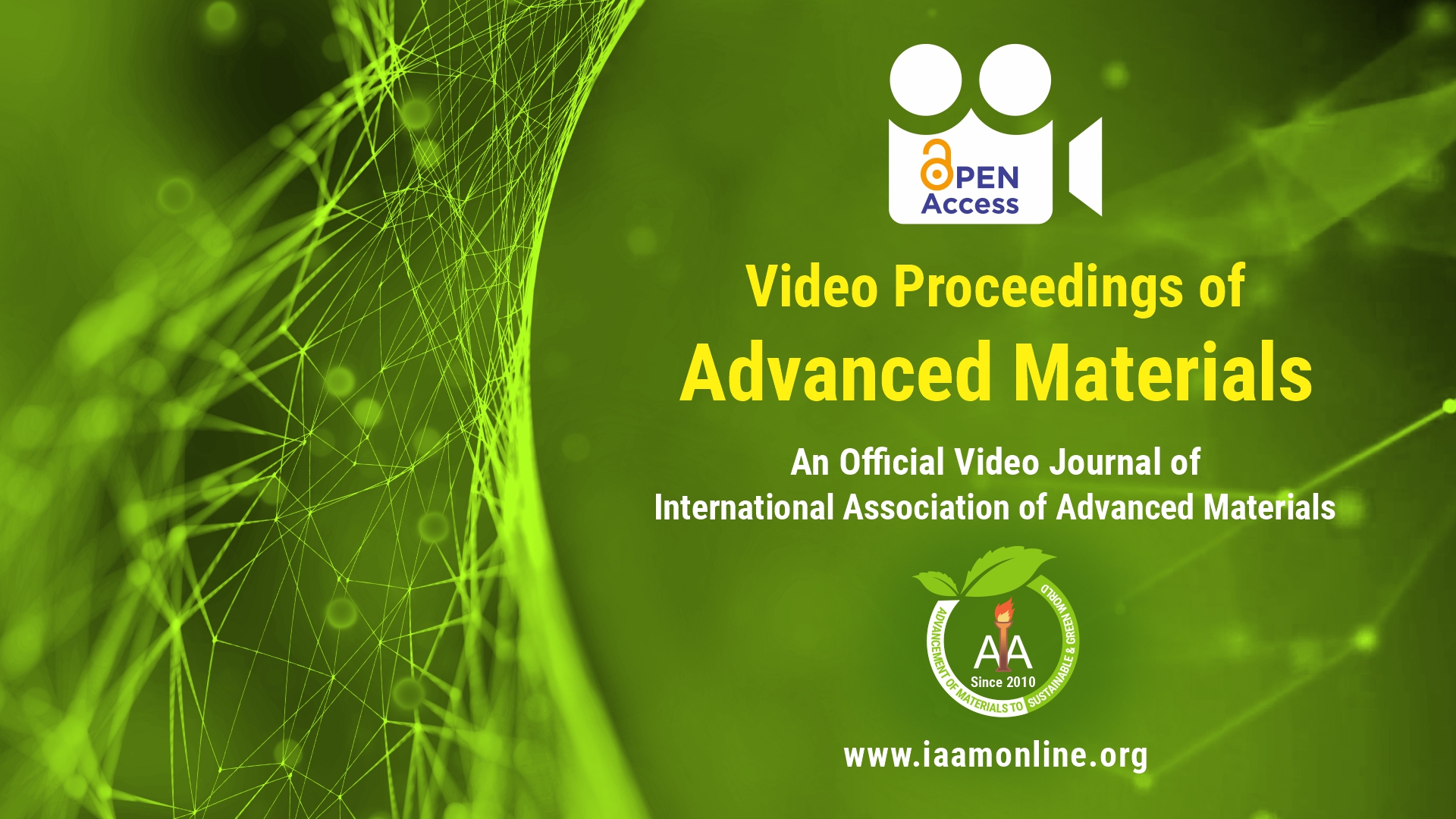Video Article Open Access
Development of Nanostructured Catalysts for Electrochemical Reduction of Carbon Dioxide
Aicheng Chen*, M. Nur Hossain, Shuai Chen, Jiali Wen, Zhonggang Liu, Sharon Abner
Electrochemical Technology Centre, Department of Chemistry, University of Guelph, Guelph, Ontario N1G 2W1, Canada
Vid. Proc. Adv. Mater., Volume 1, Article ID 2020-0845 (2020)
DOI: 10.5185/vpoam.2020.0845
Publication Date (Web): 10 Nov 2020
Copyright © IAAM
Graphical Abstract

Abstract
There is a growing interest in developing high-performance catalysts for the electrochemical reduction of carbon dioxide (CO2) to address the increasingly serious impacts of global climate change. In this talk, we report on a novel nanostructured thin film comprised of Cu nanoparticles and reduced graphene oxide (rGO), Cu nanodendrites, and an advanced three-dimensional nanoporous gold (Au) electrode for the efficient electrochemical reduction of CO2. The Cu/rGO nanocomposite was formed via the electrochemical reduction of a mixture of copper and graphene oxide (GO) precursors. The effects of an applied potential on the electrochemical reduction of CO2 were investigated using linear sweep voltammetric and chronoamperometric techniques. Carbon monoxide, methane and formate were found as the primary products based on gas chromatography and high-performance liquid chromatography analysis. The unique Cu nanodendrites were formed when an electrodeposited Cu thin film was thermally treated in the presence of a mixture of CuSO4 and H2SO4. The kinetics of the CO2 reduction reaction at the Cu nanodendrites surface was investigated using in situ electrochemical ATR-FTIR spectroscopy. The formed products were further confirmed by proton nuclear magnetic resonance (1H NMR) spectroscopy. Lastly, the fabricated nanoporous Au electrode exhibited a large electrochemically active surface area, high stability and superb catalytic activity for the electrochemical reduction of CO2 in an aqueous solution with a high Faradaic efficiency. The critical roles of nanostructured surfaces in the electrochemical reduction of CO2 is discussed.
Keywords
Electrocatalysis; nanomaterials; CO2 reduction.
Acknowledgement
This work was supported by a Discovery Grant from the Natural Sciences and Engineering Research Council of Canada (NSERC RGPIN-2015-06248). A. Chen acknowledges NSERC and the Canada Foundation of Innovation (CFI) for the Canada Research Chair Award in Electrochemistry and Nanoscience.
References
- M.N. Hossain, S. Chen, A. Chen. Applied Catalysis B: Environmental, 2019, 259, 118096.
- S. Chen, A. Chen. Journal of Physical Chemistry C 2019, 123, 23898.
- M.N. Hossain, Z. Liu, J. Wen, A. Chen. Applied Catalysis B: Environmental, 2018, 236, 483
- M. N. Hossain, J. Wen, A. Chen. Scientific Reports, 2017, 7, 3184.
Biography
Aicheng Chen is a Professor of Chemistry, Director of the Electrochemical Technology Centre at the University of Guelph, and Senior Canada Research Chair in Electrochemistry and Nanoscience. He received his MSc from Xiamen University under the supervision of Prof. S.-G. Sun and his PhD from the University of Guelph in 1998 under the direction of Prof. J. Lipkowski. Subsequent to working in the chemical industry as a Research Scientist and Electrochemical Specialist for four years, Chen joined Lakehead University in 2002 as an Assistant Professor, where he was promoted to Associate Professor in 2005, Canada Research Chair in 2006, and Full Professor in 2010. He relocated to the University of Guelph in 2017. Chen’s research interests span the areas of electrochemistry, green chemistry, materials science, and nanotechnology. He has published 9 book chapters and 220 journal articles with over 12,000 citations and an h-index of 61. He was the Chair of the Electrochemical Society Canadian Section and the Canada Regional Representative of the International Society of Electrochemistry. Chen has been Associate Editor of Canadian Journal of Chemistry since 2013 and Editor of Electrochimica Acta since 2016. For his accomplishments, Chen has received a number of awards, including the Fred Beamish Award of the Canadian Society for Chemistry, the Lash Miller Award of The Electrochemical Society, the Keith Laidler Award of the Canadian Society for Chemistry, the Canadian Catalysis Lectureship Award, the RBC Innovation Award, and the W.A.E. McBryde Medal of the Canadian Society for Chemistry, the Premier’s Research Excellence Award, and the Japan Society for the Promotion of Science Fellowship. In addition, Chen was named as a Fellow of the Royal Society of Chemistry (UK) in 2011, a Fellow of the International Society of Electrochemistry in 2014, and a Fellow of the Chemical Institute of Canada in 2017.
Video Proceedings of Advanced Materials

Upcoming Congress



